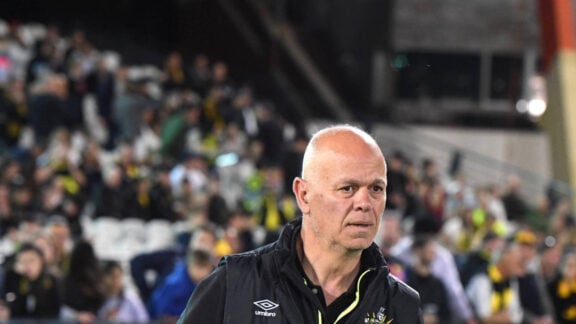For anyone who witnessed it, from either side of politics, it was a remarkable performance. The Member for Chisholm marked her arrival formally on the stage of federal politics on Thursday, in a speech that drew on the defining moments of her life’s journey to date − as a daughter, mother, businesswoman and politician.
Honouring the sacrifices of her parents, she began by reflecting on her late father Sofoulis (Phillip) Lolatgis, and how, if he had still been alive on July 3 this year, the day of the federal election when she was elected (ending 18 years of Labor control of the Chisholm seat), she imagined he “would be doing a Greek dance”.
“Dad would have believed it a miracle, not because he didn’t have immeasurable faith in me, rather because of how far and inconceivable this moment was from when he first landed in Australia in 1949 as a 15-year-old migrant boy from Greece, who couldn’t speak a word of English and who fled post-war poverty without his parents,” she said.
Ms Banks described herself as the daughter of parents who were denied an education, “but who worked hard with optimism and faith, at two or sometimes three jobs, so they could hope to provide their children with schools of their choice”.
And it was her mother’s story that she alluded to first, as she moved towards the two central themes of her speech: the fight for gender equality and the need for Australia to re-embrace cultural diversity.
As the former lawyer reflected on how her parents’ experience and values shaped her outlook on life and political philosophy, Banks spoke of her mum (looking on from the public gallery) being denied an opportunity to enter the medical profession, unlike her brothers who became doctors, “not just because of her cultural upbringing, but also because of her gender”.
Primary school was where Banks first encountered racism personally. It was the archetypal experience: being called a “wog” and told that she should go back to where she came from.
“I didn’t know the meaning of the word … the first thing I did when I got home was look up the word in my brothers’ dictionary,” she told a hushed House of Representatives.
“Incredulously I read the definition over and over: ‘Someone of dark skin who is foreign to the land on which he lives.’ I was hurt more by the tone of the word and less by its definition. I felt ugly, scared, and very alone.”
In light of Pauline Hanson’s controversial speech in the Senate just days before, Banks’ words are all the more telling and timely.
Turning to a more recent example of being abused as a woman of Greek heritage, she recounted an episode during her time as a junior lawyer. Sent to a meeting at a Port Melbourne factory where union members were on strike, she recounted how she “shook with fear” because by the time the meeting had finished the unionists had found out her Greek heritage, and that she was part of ‘management’.
“As I tried to drive away … they threw themselves on the bonnet of my car, rocked it backwards and forwards and slammed their faces against the windows as they called me a ‘wog’ (that word again), as well as other obscenities that went to my gender.”
A different kind of prejudice, born of envy and small-mindedness, was repeated last year when campaigning.
“My opponents referred to me in a spiteful and negative tone as a ‘corporate high-flying lawyer’, like it was a bad thing … someone who was ‘out of touch’, they declared, and whose objective in running for parliament was merely a ‘grab for power’.” Addressing the Speaker of the House, Banks said: “To work and to have career success does not mean that one does not love or care − be they a man or a woman”.
Speaking in Greek “to honour the people of Chisholm of any migrant heritage,” Banks concluded by talking about the pride she felt in being given the opportunity to be the voice of her electorate, and vowing to “stand for love and respect, the dignity of work, and equal opportunity”.
Julia Banks’ maiden speech was a revealing, highly personal autobiography, but also a statement of intent.
Light on party political rhetoric, though determinedly advocating her belief in “Liberal values of individual enterprise”, this was a heartfelt plea, asking the Australian parliament, and Australia itself, to reaffirm its commitment to overcome bigotry and prejudice in all their guises.








